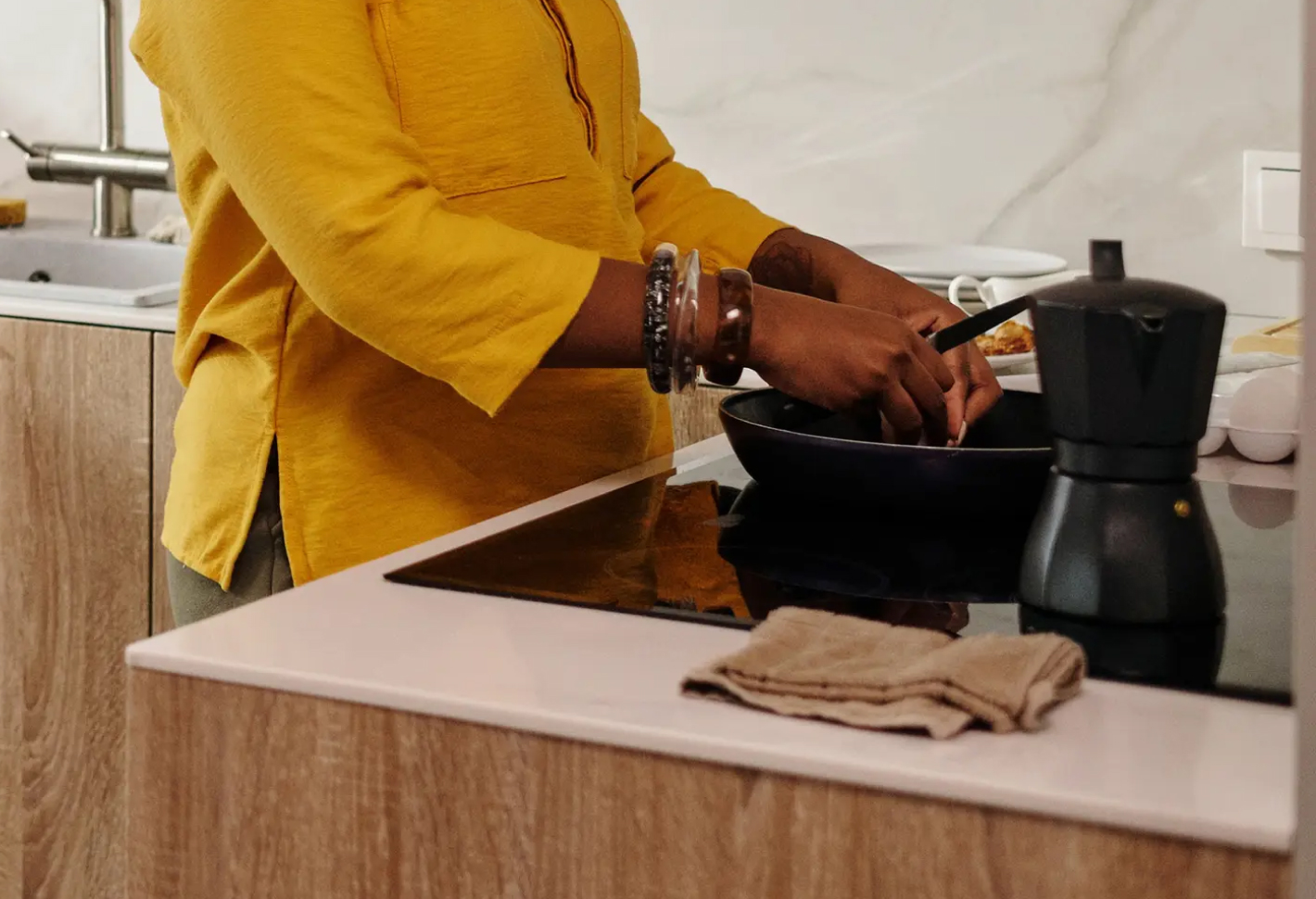Heat Retention of Cast Iron on Induction: A BBQ Enthusiast's Guide
Written By James Morgan
For barbecue enthusiasts, the pursuit of perfection in grilling is a never-ending journey. One of the vital components of achieving that succulent sear or perfect grill mark is the cookware used. Among the plethora of options, cast iron stands out due to its remarkable heat retention capabilities. When paired with an induction cooktop, cast iron transforms cooking into an art form, especially for those passionate about barbecue.
The heat retention of cast iron on induction is unparalleled, making it a preferred choice for grill masters. This article delves deep into why cast iron is a game-changer when used with induction cooktops, offering insights that will elevate your barbecue experience.

Why Cast Iron and Induction are a Perfect Match
Cast irons ability to retain and distribute heat evenly makes it a staple in kitchens worldwide. When used on an induction cooktop, this property is further amplified. Induction technology uses electromagnetic fields to heat cookware directly, rather than relying on an external heat source. This means that the heat is transferred more efficiently to the cast iron, allowing it to reach the desired temperature quickly and maintain it consistently.
For those who enjoy searing meat or achieving perfect grill marks, the combination of cast iron and induction is a dream come true. The steady heat retention ensures that your meat cooks evenly, resulting in juicy and flavorful dishes every time.
The Science Behind Heat Retention
Understanding why cast iron retains heat so well requires a bit of science. Cast iron is dense and has a high specific heat capacity, meaning it can absorb a lot of heat energy before it begins to get hot. Once heated, it holds onto this energy, releasing it slowly over time. This property is particularly advantageous when cooking large cuts of meat or when you need to maintain a steady temperature for a prolonged period.
In the context of induction cooking, cast iron's high heat retention means that once heated, there is minimal fluctuation in temperature. This stability is crucial for recipes that require precision, such as those involving slow cooking or simmering.
Benefits for Barbecue Enthusiasts
For barbecue enthusiasts, the benefits of using cast iron on induction cooktops extend beyond mere heat retention. Here are a few reasons why this combination should be your go-to for grilling:
- Effortless Searing: The even heat distribution of cast iron ensures a perfect sear, locking in flavors and juices.
- Consistent Results: The reliable heat retention translates to consistent cooking results, making your grilling efforts more predictable and rewarding.
- Versatility: Whether you're cooking steaks, vegetables, or even pancakes, cast iron can handle it all on an induction cooktop.
Maintaining Your Cast Iron
To ensure that your cast iron continues to perform optimally on induction cooktops, proper maintenance is key. Seasoning your cast iron regularly is crucial. This involves applying a thin layer of oil and heating it until it polymerizes, creating a non-stick surface. Regular seasoning not only enhances the non-stick properties but also protects the iron from rust.
Additionally, when cleaning your cast iron, avoid using soap as it can strip away the seasoning. Instead, use hot water and a stiff brush to remove food residues. For stubborn stains, a paste of baking soda and water can be effective.
Common Mistakes to Avoid
While cast iron is durable, there are common mistakes that can impact its performance, especially on induction cooktops:
- Overheating: Although cast iron retains heat well, excessive heat can cause warping or damage to your induction cooktop. Always start with a medium heat setting.
- Ignoring Hot Spots: Ensuring that the base of the cast iron is flat and even is crucial for optimal performance on induction surfaces.
For more tips on maintaining your cast iron and enhancing your grilling experience, check out our article on perfect grill marks.
Choosing the Right Cast Iron for Induction
Not all cast iron cookware is created equal, and selecting the right piece for your induction cooktop can make a significant difference. Look for cast iron with a smooth, flat base and ensure it is induction-compatible. Brands like Lodge and Field Company offer high-quality options that work seamlessly with induction technology.
For those new to induction cooking, start with a versatile skillet or Dutch oven. These pieces are not only great for grilling but can also be used for baking, roasting, and more.
Final Thoughts
In conclusion, the heat retention of cast iron on induction makes it an invaluable tool for barbecue enthusiasts. Its ability to maintain consistent heat, coupled with the efficiency of induction technology, elevates the cooking experience to new heights. Whether you're searing a steak or slow-cooking a brisket, cast iron on induction is a combination that promises delicious results.
For more insights and tips on enhancing your barbecue skills, explore our article on holiday grilling tips.

FAQ
Does cast iron work well on all induction cooktops?
Yes, cast iron is compatible with all induction cooktops. However, ensure that the cookware has a flat base for optimal heat transfer.
Is there a specific brand of cast iron that's best for induction?
Brands like Lodge and Field Company are highly recommended for their quality and compatibility with induction cooktops.
How do I maintain the seasoning of my cast iron?
Regularly apply a thin layer of oil and heat your cast iron to maintain its seasoning. Avoid using soap when cleaning.



